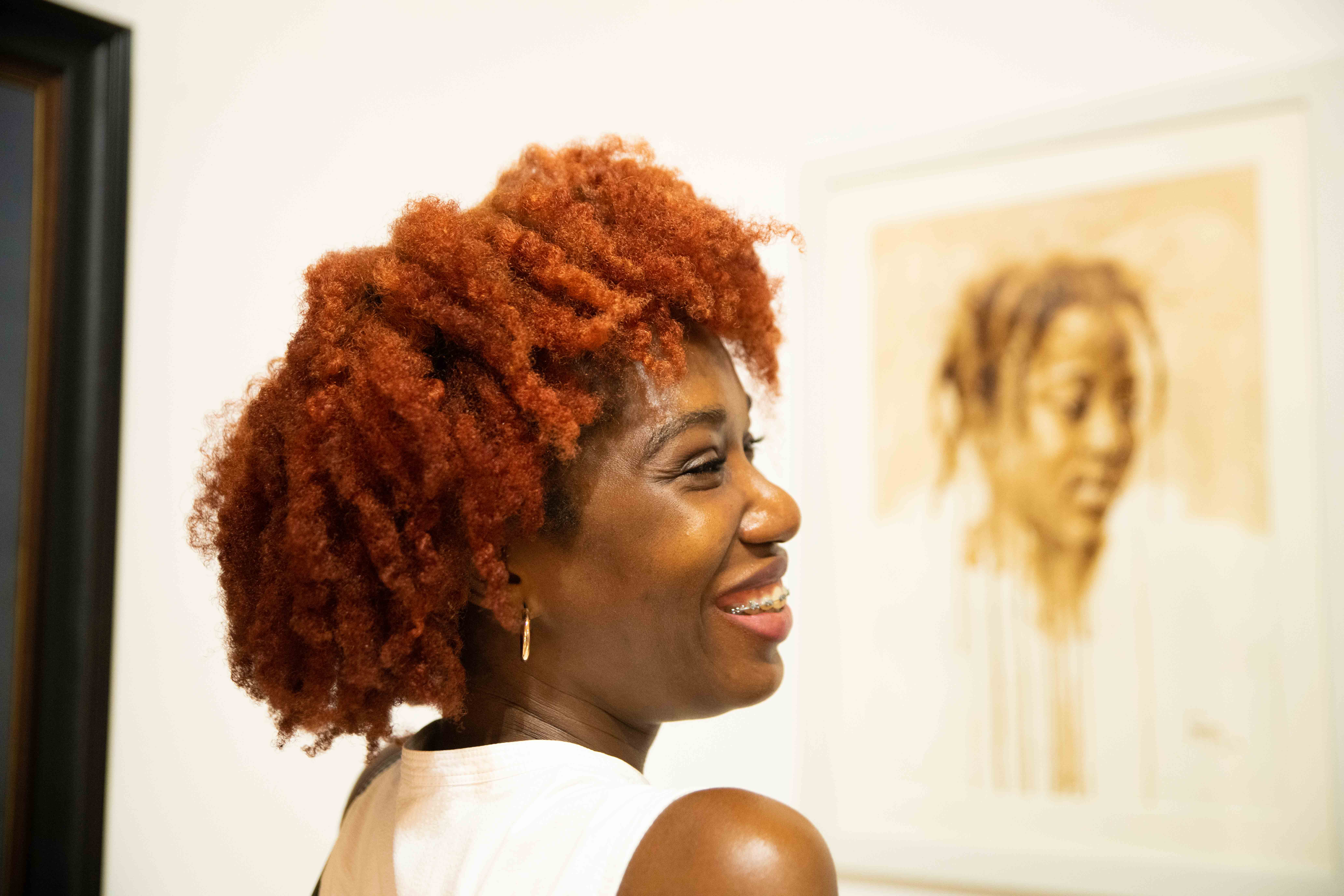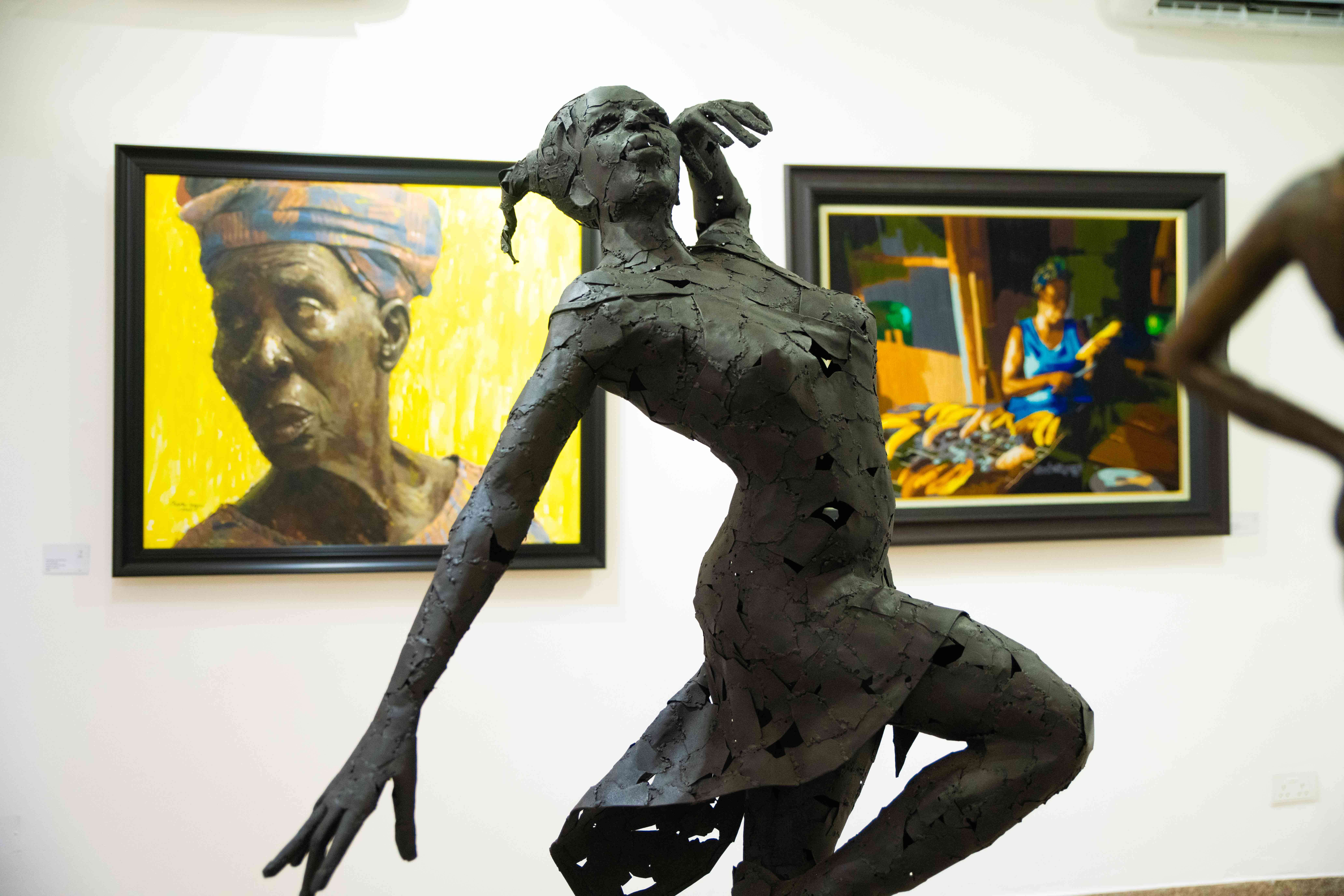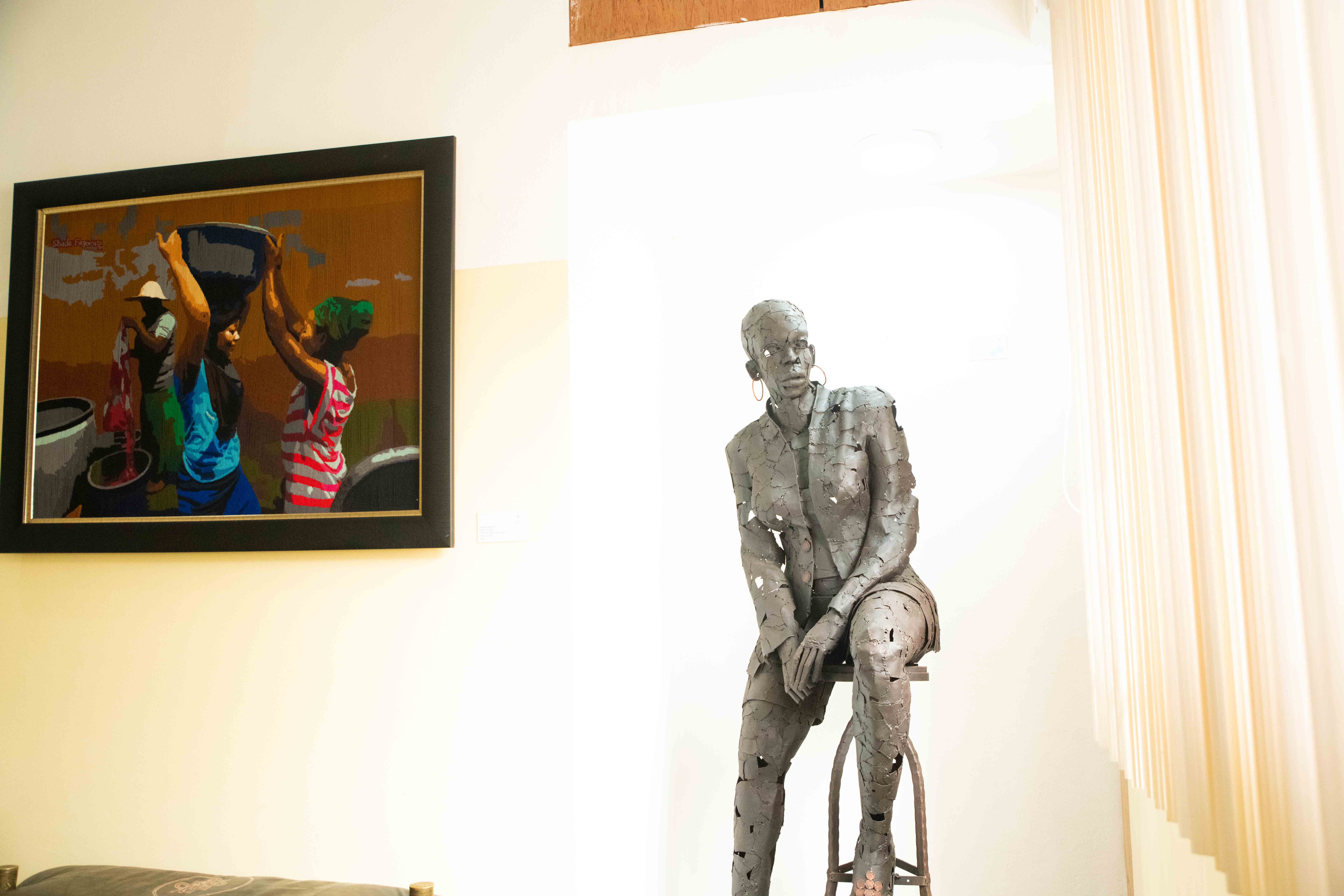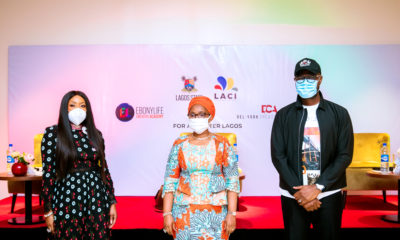Features
Estelle Dogbo: African Art is Not Just a Cultural Gift, It’s a Medium for Change

Toromade Tosin at the exhibition “Generations: The Future Masters.”
For as long as I can remember, African Art was the overpriced wooden statue I would purchase in the market as a gift to my western friends. I would proudly bring home my discounted piece, which also served as a trophy to commend my aggressive bargaining skills. Unfortunately, I was often met with the realization that I had still paid too much for it. The value I had put on that piece of art was that of a souvenir which my friends and/or family would keep in their living room until the next souvenir from Africa would come to replace them.
Beyond this familiar story, there is this common perception that art, especially African art, is an opaque industry. Most of us will tag it as a hobby or an interest at best, something that is done or attended to during our free time. We do not really study art as a general topic during our school years, and we meet people who make it their career with perplexity. Moreover, in Africa, where basic needs are still yet to be met, there is this impression that artists cannot live off their craft. But as the world transforms and civilizations merge, the narrative need to be shifted and African art – like everywhere else – needs to be recognized as a medium for change. What does this mean?

Ayooluwa Akinrinola’s body of work from the exhibition “Generations: The Future Masters.”
In Western countries, there is a general consensus that works of art offer opportunities to reflect, learn and even effect change. When we think of contemporary artists like Andy Warhol who influenced pop culture, or Jean-Michel Basquiat who inspired a whole generation of millennial artists through his paintings, we think of self-expression, advocacy, and denunciation of social biases. These artists became cultural icons because they dared to present interpretations of their societies to the public who viewed their message, accepted it and gave them a chance to thrive. To be fair, we are no strangers to this concept of art being a medium for social change. Take the music and movie industries for example, African artists have successfully launched trends that positively affected local and global communities. Afrobeats is an established and highly lucrative musical style while Nollywood is synonymous with deep cultural habits from Nigeria. Yet, more work needs to be done in the space of visual arts.
A path forward for visual arts could start with learning from the pioneer African artists who paved the road and pushed for the conversation of representing art from Africa on the global scene. Understanding who they are, what they stand for, and how they choose to position themselves can go a long way in expanding the value we place on contemporary African art. Visual art from Africa is relatively young in its modern form and is gradually gathering many advocates for funding and global representation. Now that social media offers an opportunity for increased visibility, we can provide more support for visual artists that go beyond people who abstractly throw colours onto canvases. We can begin to focus on the message behind the piece.

Ayooluwa Akinrinola’s body of work from the exhibition “Generations: The future Masters.”
How can we, the general public, contribute to this change in narrative? The next time you look for a fun activity with your children, family or friends, why not carve out some time to visit a gallery or a museum in Lagos. Exhibitions are popping up gradually and are mostly pocket friendly. In your spare time browsing on Instagram, why not include a few galleries and artist pages on your feed? That way, we can begin to build personal opinions on the work of African visual artists, interact with them, and maybe even start collecting a few pieces. Together, we can kick off a cultural revolution.





















